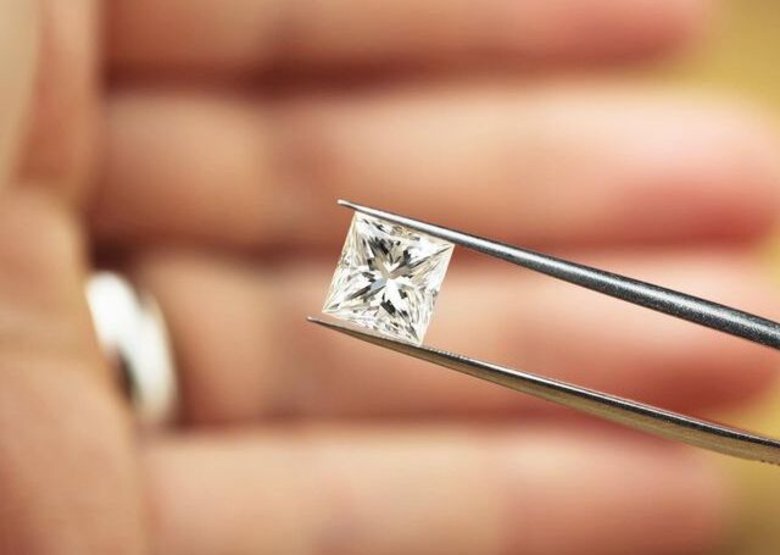
Why Drinking More Water May Not Be Enough for Hydrated Skin
We have all heard the advice: “Drink more water for glowing, hydrated skin.” While staying hydrated is essential for overall health, it is not always enough to keep your skin soft, plump, and moisturized. Many people increase their water intake, expecting their skin to look dewy and refreshed, only to be disappointed by persistent dryness, dullness, or irritation.
The truth is that hydrating your skin is more complex than simply drinking water. Your skin’s ability to retain moisture depends on your skincare routine, environmental factors, and overall skin health. To achieve truly hydrated skin, you need to combine internal hydration with external skincare practices using effective products like Numbuzin and top Korean Skincare Brands.
In this guide, we will explore why drinking more water alone is not enough for hydrated skin and what you should do instead to maintain healthy, glowing skin.
Why Drinking Water Alone Does Not Guarantee Hydrated Skin
Water plays a crucial role in maintaining overall health, but its direct effect on skin hydration is limited. When you drink water, it is absorbed by your bloodstream and distributed to essential organs first, with your skin receiving only a fraction of that hydration.
Reasons Why Water Intake May Not Be Enough
- The skin barrier may be damaged, causing moisture to evaporate too quickly.
- Environmental factors like dry air, wind, and sun exposure can dehydrate the skin.
- Aging and lifestyle habits affect the skin’s ability to retain moisture.
- Certain skin conditions like eczema or rosacea weaken the skin’s natural hydration levels.
While drinking enough water is important, it should be combined with a proper skincare routine to ensure long-lasting hydration.
The Role of the Skin Barrier in Hydration
The skin barrier acts as a protective shield that prevents moisture loss and keeps irritants out. If this barrier is compromised, hydration escapes too quickly, leaving your skin dry, flaky, and irritated, even if you drink plenty of water.
How to Strengthen the Skin Barrier for Better Hydration
- Use ceramide-rich moisturizers to repair and reinforce the skin barrier.
- Avoid harsh cleansers and exfoliants that strip natural oils.
- Apply hydrating ingredients like hyaluronic acid and glycerin to help your skin retain moisture.
Pro Tip: Numbuzin offers barrier-strengthening formulas with ingredients like ceramides and fermented extracts, helping lock in hydration and restore skin health.
Hydration from Skincare: Key Ingredients That Work
To keep your skin truly hydrated, you need to apply moisture directly to your skin with the right products. The best hydrating skincare ingredients attract and retain water in the skin, preventing dehydration.
Top Hydrating Ingredients to Look For
- Hyaluronic Acid – Attracts water and plumps the skin.
- Glycerin – Helps draw moisture into the skin for long-lasting hydration.
- Panthenol (Vitamin B5) – Soothes and strengthens the skin barrier.
- Ceramides – Seal in moisture and prevent dehydration.
- Squalane – A lightweight oil that locks in hydration without feeling greasy.
Pro Tip: Many Korean Skincare Brands focus on hydration, using advanced formulas that deeply nourish the skin without clogging pores.
How to Layer Your Skincare for Maximum Hydration
Even the best skincare products will not be effective if they are not applied in the right order. To maximize hydration, layering products from the thinnest to the thickest consistency ensures each step properly absorbs into the skin.
Step-by-Step Hydrating Skincare Routine
- Cleanser – Use a gentle, non-stripping cleanser to remove dirt and impurities.
- Hydrating Toner – Apply a toner with hyaluronic acid or fermented extracts to prep the skin.
- Serum – Use a hydrating serum containing niacinamide or glycerin to boost moisture levels.
- Moisturizer – Lock in hydration with a ceramide-based or gel-cream moisturizer.
- Sunscreen (Morning Only) – Protect your skin from sun damage with a lightweight SPF.
Pro Tip: Numbuzin’s hydrating serums contain powerful moisture-locking ingredients that improve skin elasticity and hydration levels.
How External Factors Affect Skin Hydration
Even with a great skincare routine, external factors like weather, pollution, and lifestyle habits can impact your skin’s hydration levels.
Environmental Factors That Cause Dehydration
- Cold weather dries out the skin due to low humidity.
- Air conditioning and heating remove moisture from the air, making skin feel tight.
- Sun exposure weakens the skin barrier and causes water loss.
How to Protect Your Skin from Environmental Damage
- Use a humidifier indoors to maintain moisture in the air.
- Apply a protective sunscreen like Purito Daily Go-To Sunscreen to prevent sun damage.
- Avoid hot showers that strip the skin of its natural oils.
Pro Tip: Many Korean Skincare Brands formulate products specifically for environmental protection, helping the skin stay hydrated and resilient year-round.
Diet and Hydration: What You Eat Matters
Skincare is not just about what you apply to your skin—it is also influenced by what you eat. Certain foods support skin hydration by providing essential vitamins, antioxidants, and healthy fats.
Best Foods for Hydrated Skin
- Water-rich fruits and vegetables like watermelon, cucumber, and oranges.
- Omega-3 fatty acids from salmon, flaxseeds, and walnuts.
- Antioxidant-rich foods like blueberries, spinach, and green tea.
- Collagen-boosting foods like bone broth, tomatoes, and citrus fruits.
Pro Tip: A balanced diet combined with proper skincare will give your skin the best chance at staying hydrated and youthful.
Common Myths About Hydration and Skincare
There are many misconceptions about hydration, leading to skincare mistakes that can actually make dryness worse.
Myths vs. Reality
Myth: Drinking 8 glasses of water a day guarantees hydrated skin.
Reality: Internal hydration is important, but skincare and environmental factors also play a big role.
Myth: Oily skin does not need hydration.
Reality: Even oily skin can be dehydrated and requires lightweight hydration to maintain balance.
Myth: Thick creams are the best for dry skin.
Reality: Layering hydrating ingredients is more effective than using heavy creams alone.
Pro Tip: Choosing the right Korean Skincare Brands with hydrating yet lightweight formulas helps deliver moisture without heaviness.
Conclusion
While drinking water is essential for overall health, it is not enough to keep your skin hydrated on its own. Proper skincare, a balanced diet, and environmental protection all play a crucial role in maintaining soft, plump, and moisturized skin.
Key Takeaways for Hydrated Skin
- Strengthen your skin barrier with ceramides and nourishing moisturizers.
- Use hydrating ingredients like hyaluronic acid and glycerin for long-lasting moisture.
- Follow a layered skincare routine to maximize absorption and hydration.
- Protect your skin from environmental stressors like sun exposure and dry air.
- Incorporate water-rich foods and healthy fats to support skin hydration from within.
By combining hydrating skincare products like Numbuzin with high-quality formulas from Korean Skincare Brands, you can achieve and maintain deeply hydrated, glowing skin all year long.


:max_bytes(150000):strip_icc()/labgrownlede-2b7540f7f7404558a08f1a555862f3d3.jpg)
